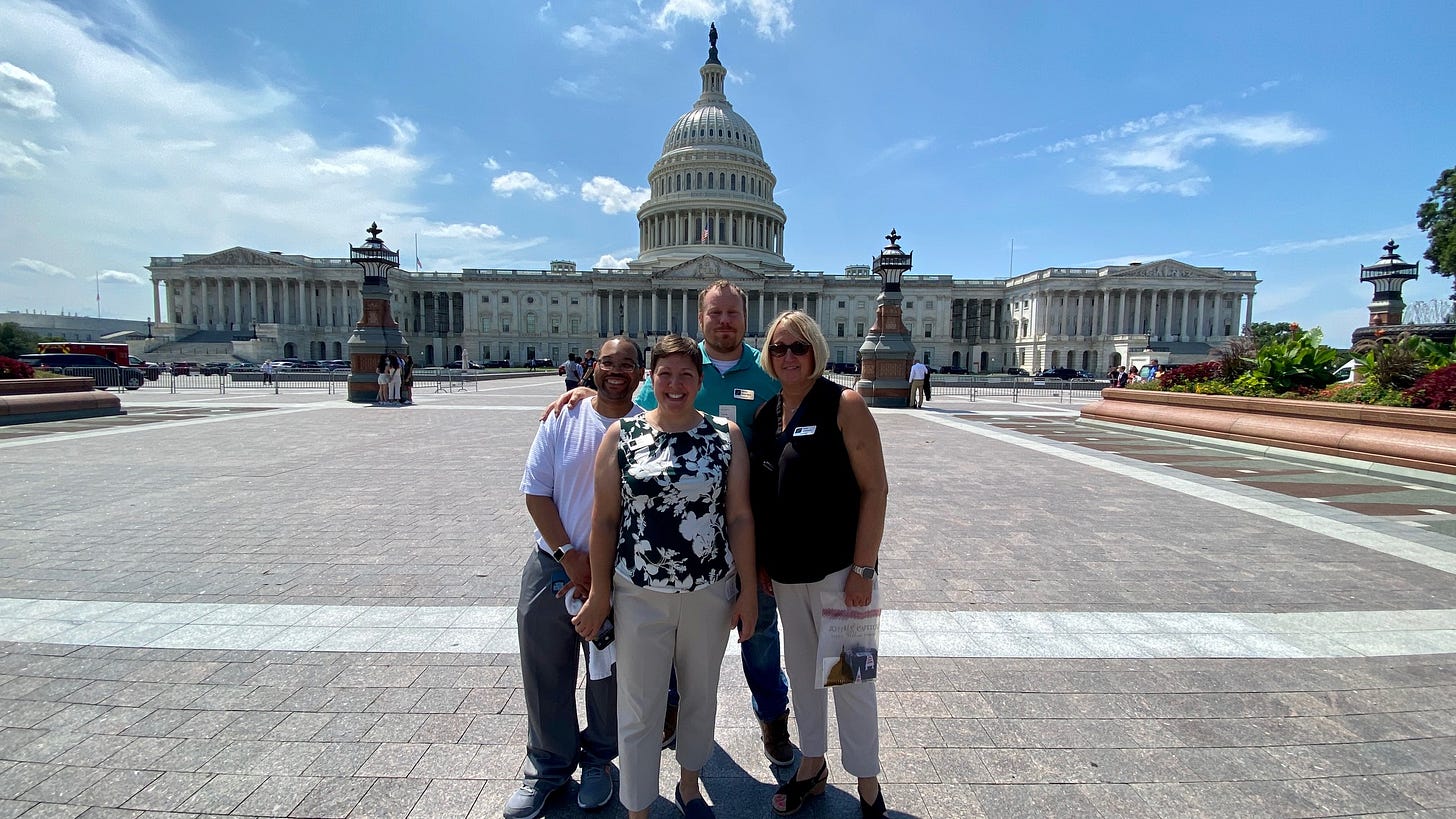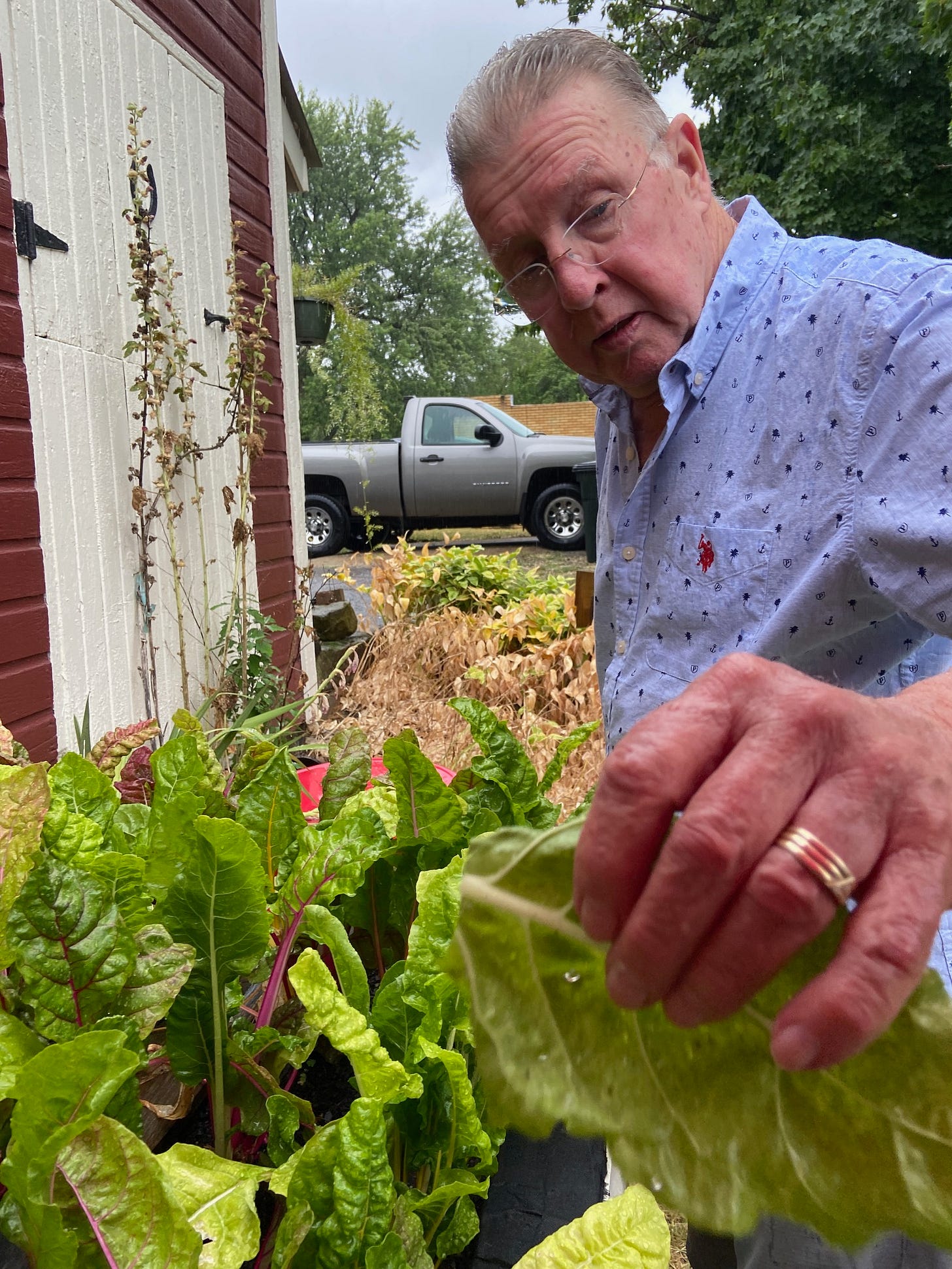Hello, friends! In the interest of not burying the lead, let me first say I graduated from the Appalachian Leadership Institute (ALI) on Wednesday. It’s been quite the journey, one that has taken the better part of the last year to complete. I’ve gone to sessions in six Appalachian states as well as D.C. We learned about community development, economic development, tourism, housing, healthcare, and other issues and opportunities within the region. It’s been the learning and bonding experience of a lifetime! If you have the opportunity to apply to future cohorts, JUST DO IT!
And now for the reflection…
Last summer as I was applying to ALI, one of my essay responses focused on my efforts to eradicate a patch of invasive mugwort across the street from my house. From my essay:
“I’ve been wrestling with a 100-foot long patch of mugwort for the past five years. When my wife and I moved into our Pittsburgh neighborhood, we encountered an unsightly section of a Norfolk Southern rail wall. It was bursting with invasive weeds and lined with sagging caution tape…it was an eyesore. I started talking with my neighbors and we decided that we deserve a better community gateway. We got to work clearing the weeds and landscaping the area.”
It wasn’t until last spring that we aimed for a complete overhaul. We pulled the mugwort and laid cardboard to prevent regrowth. This spring, I spread Sulphur Cosmos seeds, along with some perennial varieties, and have been watering away. I’ve thought so many times about how gardening is an exercise in both hope and patience.
The first blooms started to appear while I was in D.C. for my ALI graduation this week. It seems fitting to me that the blossoms have begun to transform the space just as my peers and I are blossoming in other ways. Perhaps even more fitting, is that the plants aren’t evenly distributed in the way I had imagined. Instead, they’ve come up in clusters. There are still some bare spots, but that will change over time.
Through ALI, the Appalachian Regional Commission and the program facilitators aim to operate the best leadership program in the country (seriously, it’s incredible!) Our 40-member cohort is the fifth to complete the program. So now there are 200 Appalachian leaders who’ve been through the training, coming up in clusters, blossoming, and fixing to transform this place we call home.
So what have I learned over the last nine months? I have multiple legal pads worth of information, but I’m going to share just a few high level ideas here:
Don’t ever consider yourself “less than.” I entered the program thinking of myself as being “Less Appalachian” than many of my peers. Being a resident of Northern Appalachia and in the largest city in the region, most people don’t even recognize that western Pennsylvania is part of the Appalachia, let alone Pittsburgh. The cultural traditions don’t run quite as deep (though they are here, trust me). The history and industrial roots vary (though the connections can be made). The present day issues and opportunities vary (but again, they are here). It was easy to feel “less than” going into the program, but that disempowering line of thinking serves none of us. We are all connected, and the variety of lived experiences (and working together through difference) is what makes the collective so powerful. Appalachia is not a monolith, nor should it be.
Ask yourself, “What if I’m wrong?” What I remember more than anything else during our first session in Fayetteville, West Virginia last fall is one of our facilitators sharing a quote by Howard Baker: “Always assume the other person may be right.” I mentioned that we have to work through difference. Part of doing the work well is being willing to consider this, as well as to ask yourself, “What if I’m wrong?” It’s the willingness to search for common solutions, to build connections, and see the humanity in others that will help us see our way out of the colossal mess we are in. I wrote about this is my last post, “Building a New ‘We’”, if you want to dig in a little more on this topic. As for me, I often find that there’s a particular lesson that I’m meant to learn at different times in my life. This is the one I’ve been working through over the last nine months.
Open is the answer. After the first session back in October, I wrote about how we sometimes have to have to be cracked wide open in order to grow. Here’s the full post. I quoted Jodi Picoult, who said, “Kids think with their brains cracked wide open: becoming an adult, I’ve decided, is only a slow sewing shut.” I wrote then that I might need to travel with a seam ripper as I made my way through the program. Open is the answer. I think and hope that I brought my whole self, an open mind, and an open heart to my ALI experience. I know that’s what I received from others. And some of the best relationships have come out of it as a result. I now have 40+ new friends and the kinds of connections that I can’t describe in words. It’s been the most gratifying experience.
I went into ALI hoping to improve my hard skills in the realm of community and economic development so that I can better serve my clients throughout the region (and beyond). I believe that I’m on this trajectory. But my growth and the connections that I’ve made run so much deeper, and for this I am grateful.
Trail Towns 101 Course
I'm so excited to partner with Michele Archie of The Harbinger Consultancy to offer this first-time trail town training, Trail Towns 101! We are offering three 2-hour live video conference sessions plus one-on-one coaching. Trail Towns 101 will help you take the next steps toward unlocking the full potential of your local trails. There's also an "accelerator" option if you want to get involved even sooner. The accelerator component is free of charge if you register by July 31.
Use code CycleForward for 10% off the cost of the course. When you register by August 31, you can receive the 20% early bird discount AND the 10% off discount!
Gratitude Notes
With my dad’s birthday approaching, I’d like to express my gratitude for him. We shared a moment last week that reminded me of how special he is to me and how, no matter my age, I’m so grateful for those tender moments. It was as simple as him going out in the rain to pick some Swiss chard for me before I headed home to Pittsburgh. Dripping wet, he filled the bag of chard and left me with the parting words, “See you later, sweetheart.” I could have been eight years old, or 20, or any age in that moment, feeling so much love and gratitude for the father who raised me and continues to show his love the best way he knows how.








I love your lessons from the ALI. "What if I am WRONG?!" is also something that haunts me. I've always been a collaborative person and even though I AM, I question my responses when I go into discussions. Leadership is hard Definitely something that I will work on. Keep doing the good work!